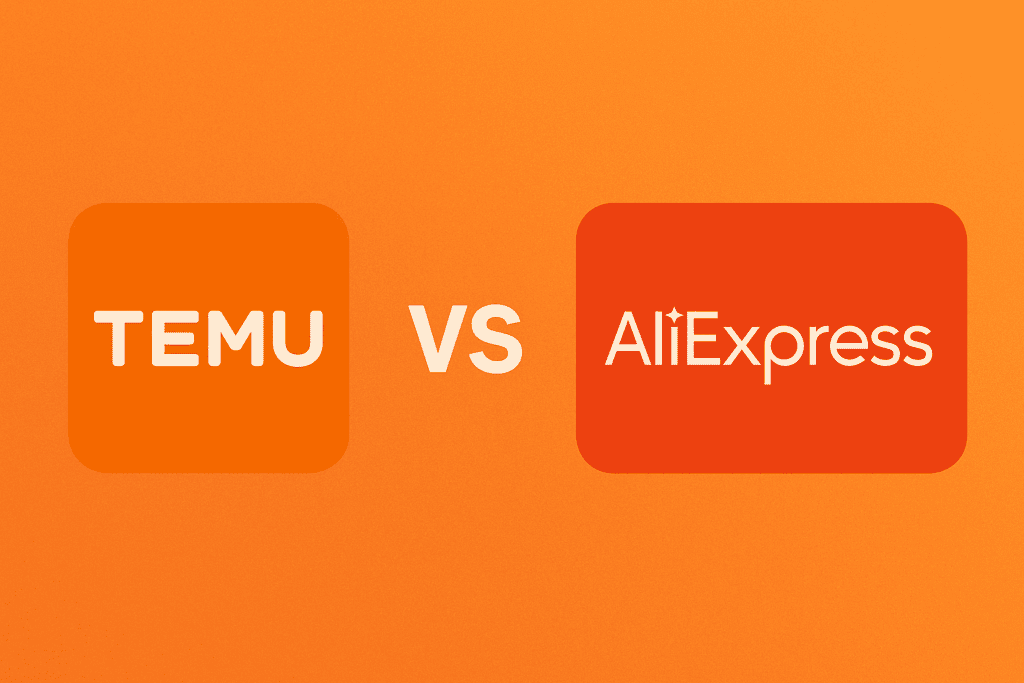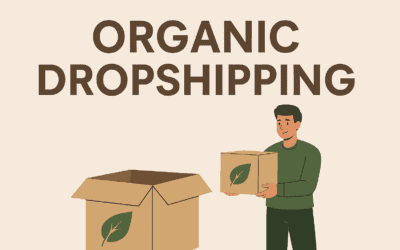
Dropshipping continues to evolve rapidly in 2025, and with the rise of new platforms like Temu, many entrepreneurs are re-evaluating their traditional reliance on AliExpress. Both platforms offer vast product selections and access to low-cost suppliers, but they differ in logistics, pricing, customer experience, and long-term business reliability. So which is better for your dropshipping business?
In this in-depth comparison of Temu vs AliExpress, we’ll break down their pros, cons, and key differences to help you make the right choice.
Table of Contents
ToggleWhat Is Dropshipping? (Quick Refresher)
Dropshipping is a retail fulfillment model where a store sells products it doesn’t keep in stock. When a customer places an order, the store purchases the item from a third-party supplier (usually from China), who then ships it directly to the customer. This model removes the need for upfront inventory investment or warehouse space.
The most popular dropshipping suppliers over the last decade have come from AliExpress, but recently, platforms like Temu have begun capturing attention due to their competitive prices and fast-growing customer base.
Temu: A New Contender in the Dropshipping World
Temu, owned by PDD Holdings (the same parent company behind Pinduoduo in China), launched in 2022 and quickly became one of the fastest-growing eCommerce apps globally. It’s a B2C platform offering rock-bottom prices across categories like fashion, electronics, home goods, and more.
Pros of Using Temu for Dropshipping:
- Ultra-low prices: Temu often undercuts AliExpress, especially on popular trending items.
- Free shipping: Most products come with free shipping to the US and other major markets.
- Fast logistics: Temu has warehousing and shipping solutions that enable faster delivery compared to standard AliExpress shipping.
- Western-focused branding: Its app and website are optimized for a Western audience, creating a modern and familiar shopping experience.
Cons of Temu:
- No official dropshipping support: Temu isn’t built for B2B relationships or custom branding.
- No API integrations or automation tools: Unlike AliExpress, Temu doesn’t integrate with platforms like Shopify, WooCommerce, or Oberlo alternatives.
- Order packaging includes Temu branding: This can confuse your customers and harm your brand perception.
- Limited scalability: Bulk order options or branded packaging aren’t currently available.
AliExpress: The Veteran Dropshipping Supplier
AliExpress has been a staple for dropshippers since the early days of eCommerce. Backed by Alibaba Group, it offers millions of products from Chinese sellers and is deeply integrated with Shopify and other eCommerce platforms.
Pros of Using AliExpress for Dropshipping:
- Dropshipping-friendly tools: AliExpress works with apps like DSers, AutoDS, and Zendrop for automated order processing.
- Custom branding options: Many suppliers offer private labeling or white-label products.
- Wide supplier network: Easy to switch suppliers or compare prices across dozens of listings.
- Global shipping options: Sellers ship to over 200 countries with varying logistics solutions.
Cons of AliExpress:
- Inconsistent shipping times: Standard AliExpress shipping can still take 10–30+ days depending on location and supplier.
- Varying product quality: Lack of quality control means some products may arrive damaged or different from the listing.
- More expensive than Temu (at times): Some products are marked up, especially trending or viral items.
- Limited customer service: Dispute resolution can be slow and cumbersome.
Temu vs AliExpress: Head-to-Head Comparison
 Let’s compare the two platforms based on critical dropshipping factors:
Let’s compare the two platforms based on critical dropshipping factors:
| Feature | Temu | AliExpress |
| Pricing | Generally lower due to aggressive market strategy | Competitive, but often slightly more expensive |
| Shipping Speed | 6–14 days (USA), often faster than AliExpress | 10–30 days (standard); varies by seller |
| Shipping Cost | Usually free | May or may not include free shipping |
| Platform Integration | None | Strong Shopify, WooCommerce, AutoDS, DSers |
| Private Labeling/Branding | Not available | Available with certain suppliers |
| Customer Packaging | Branded as Temu (not white-labeled) | Some suppliers offer neutral or branded packaging |
| Product Range | Wide, but curated | Vast (millions of listings) |
| Order Automation | No | Yes (via multiple apps) |
| Reliability/Scalability | Lower (no bulk order support) | High (many long-term supplier relationships) |
Which Platform Is Better for Beginners?
If you’re just testing dropshipping in 2025 and want to get started quickly without committing to apps, tools, or expensive software, Temu can be a good entry point. Its low prices and free shipping allow you to validate product ideas without spending much upfront.
However, be aware that Temu’s lack of dropshipping features such as white-label packaging, automated ordering, and integrations limits long-term scalability. You’re also at the mercy of Temu’s branding, which could confuse or frustrate your customers if they realize your store is reselling from another retailer.
Which Platform Is Better for Scaling?
If your goal is to build a long-term brand or generate consistent revenue, AliExpress is the better choice. It supports:
- Automated order processing
- Long-term supplier relationships
- Options for branding and private labeling
- Deeper integration with your eCommerce tech stack
While AliExpress has longer shipping times and a more outdated interface, its ecosystem for dropshippers is unmatched. You can build systems that run automatically and provide more control over the customer experience.
Temu’s Potential as a Future Dropshipping Powerhouse
Temu is still new and rapidly evolving. If they decide to launch a B2B or dropshipper-focused solution, they could disrupt AliExpress at scale. Given their access to Chinese suppliers and logistics infrastructure, Temu has the potential to dominate the space but it’s not there yet.
Until then, it remains more of a retail competitor than a wholesale partner.
Alternatives to Temu and AliExpress
If neither platform fits your needs, here are a few other options worth considering in 2025:
- CJ Dropshipping – Offers faster shipping, branding options, and US warehouses.
- Zendrop – Integrates with Shopify, offers faster US shipping and private labeling.
- Spocket – Focuses on high-quality US and EU products with quick delivery.
- DSers – Automates your AliExpress orders and offers multiple supplier options.
Final Verdict: Temu or AliExpress?
| Use Temu If You… |
| Want to test a few products with minimal investment |
| Don’t mind branded packaging |
| Are focused on trends and viral products |
| Aren’t yet concerned with automation or branding |
| Use AliExpress If You… |
| Want to build a scalable, automated dropshipping business |
| Need branding and white-label packaging |
| Use Shopify, WooCommerce, or third-party apps |
| Want flexibility in choosing and switching suppliers |
Conclusion
Temu is shaking up the eCommerce world with ultra-low prices and free shipping, but it isn’t (yet) designed for dropshipping at scale. AliExpress remains the go-to platform for serious dropshippers who want control, automation, and branding capabilities.
In 2025, the best approach might be hybrid: use Temu to test new products and AliExpress to scale them into long-term profit drivers.
Before committing, always order samples from both platforms to verify quality, shipping speed, and customer experience. The right supplier can make or break your store so choose wisely.
Recent Posts
- How To Start Dropshipping From Amazon To Shopify 2025
- How to Launch a Dropshipping Business Without Spending Money in 2025
- 9 Powerful Shopify B2B Apps for 2025, Structured by Sales Flow
- Organic Dropshipping: The Future of Sustainable E-commerce
- Temu vs AliExpress for Dropshipping in 2025: Which is Better?
Related articles
Start the dropshipping store now! is proudly powered by WordPress
 WhatsApp
WhatsApp


Recent Comments